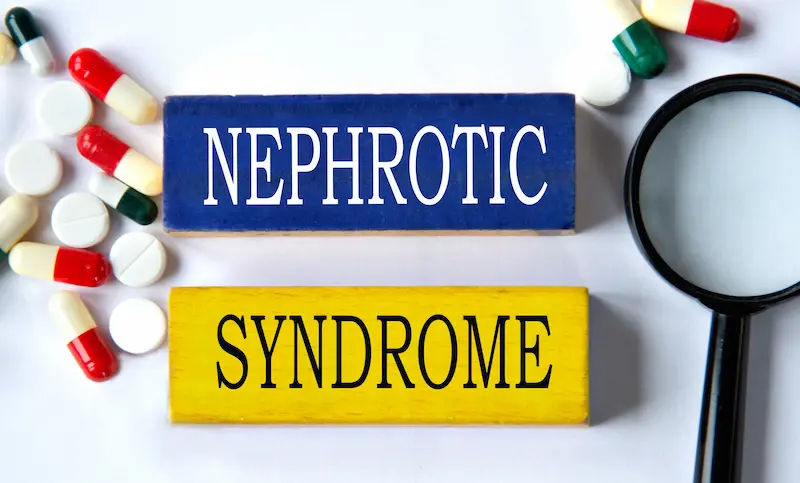Antibody Tests for Autoimmune Nephropathies
Explore the role of antibody tests in diagnosing autoimmune nephropathies. Understand how these tests help detect specific immune responses affecting kidney function.

Written by Dr. Vasanthasree Nair
Reviewed by Dr. D Bhanu Prakash MBBS, AFIH, Advanced certificate in critical care medicine, Fellowship in critical care medicine
Last updated on 13th Jan, 2026

Autoimmune nephropathies are kidney diseases caused by an overactive immune system that mistakenly attacks healthy kidney tissues. These conditions can lead to inflammation, scarring, and impaired kidney function. To diagnose and manage these disorders, doctors often rely on antibody tests, which help identify specific immune system markers associated with kidney damage.
If you or a loved one has been advised to undergo antibody testing for autoimmune nephropathies, this guide will help you understand what these tests mean, why they are important, and how they can aid in diagnosis and treatment.
What Are Autoimmune Nephropathies?
Autoimmune nephropathies occur when the body’s immune system produces antibodies that attack the kidneys. Some common conditions include:
Lupus Nephritis (associated with systemic lupus erythematosus)
Anti-Glomerular Basement Membrane (Anti-GBM) Disease
ANCA-Associated Vasculitis (e.g., Granulomatosis with Polyangiitis, Microscopic Polyangiitis)
Membranous Nephropathy
These diseases can cause symptoms like:
Swelling in the legs, ankles, or face (edema)
High blood pressure
Blood or protein in the urine
Fatigue and weakness
Reduced kidney function
Early detection and treatment are crucial to prevent permanent kidney damage.
Consult a Top Nephrologist
What Are Antibody Tests?
Antibody tests are blood tests that detect specific proteins (antibodies) produced by the immune system. In autoimmune nephropathies, these tests help identify the underlying cause of kidney damage.
Common Antibody Tests for Autoimmune Nephropathies
1. Anti-Nuclear Antibody (ANA) Test
Used to diagnose lupus nephritis.
A positive ANA test suggests an autoimmune disorder but requires further testing for confirmation.
2. Anti-dsDNA and Anti-Smith Antibodies
More specific for lupus nephritis.
High levels may indicate active kidney inflammation.
3. Anti-Glomerular Basement Membrane (Anti-GBM) Antibodies
Associated with Goodpasture’s syndrome, a rare condition affecting kidneys and lungs.
4. Anti-Neutrophil Cytoplasmic Antibodies (ANCA)
Linked to vasculitis conditions like Granulomatosis with Polyangiitis (GPA) and Microscopic Polyangiitis (MPA).
5. Anti-Phospholipase A2 Receptor (Anti-PLA2R) Antibodies
Helps diagnose membranous nephropathy, a condition where the immune system attacks kidney filters.
Why Are These Tests Important?
Below are few reasons why these tests play a major role,
1. Early Diagnosis – Detecting antibodies early can help start treatment before significant kidney damage occurs.
2. Guiding Treatment – Different antibodies respond to different therapies (e.g., immunosuppressants, steroids).
3. Monitoring Disease Activity – Repeat tests can show if treatment is working or if the disease is worsening.
How Are These Tests Performed?
Below are the steps for performing these tests,
A simple blood sample is taken from your arm.
Some tests may also require a urine sample to check for protein or blood.
Results are usually available within a few days.
If your doctor suspects autoimmune nephropathy, they may also recommend:
Kidney biopsy (a small tissue sample examined under a microscope).
Imaging tests (ultrasound or CT scan) to assess kidney structure.
Managing Autoimmune Nephropathies
While antibody tests help diagnose the condition, treatment focuses on controlling the immune system and protecting kidney function.
Medical Treatments
Immunosuppressants (e.g., corticosteroids, cyclophosphamide) reduce immune system activity.
Biologic therapies (e.g., rituximab) target specific immune cells.
Blood pressure medications (ACE inhibitors or ARBs) protect kidneys.
Lifestyle & Dietary Tips
1. Follow a Kidney-Friendly Diet
Reduce salt to control blood pressure.
Limit protein if kidneys are damaged.
Avoid processed foods high in phosphorus and potassium.
2. Stay Hydrated (unless advised otherwise by your doctor).
3. Monitor Blood Pressure & Blood Sugar (if diabetic).
4. Avoid NSAIDs (like ibuprofen), which can harm kidneys.
5. Exercise Regularly (moderate activity helps overall health).
When to See a Doctor?
If you experience:
Persistent swelling in legs or face
Foamy or bloody urine
Unexplained fatigue or high blood pressure
Sudden weight gain (due to fluid retention)
Consult a nephrologist (kidney specialist) for further evaluation. Early intervention can prevent kidney failure and the need for dialysis.
How Apollo24|7 Can Help
If you suspect kidney-related issues or need antibody testing, book a test or consult a specialist today to take control of your kidney health.
Final Thoughts
Autoimmune nephropathies can be serious, but with the right tests and treatment, many patients can manage their condition effectively. If you have symptoms or risk factors, don’t hesitate to get tested. Early detection and proper care can make all the difference in preserving kidney function and maintaining a good quality of life.
Consult a Top Nephrologist
Consult a Top Nephrologist

Dr. Pardha Saradhi
Nephrologist
9 Years • MBBS, MD-DNB (Gen. Med.), DNB (Nephro)
Hyderabad
Apollo Hospitals D R D O kanchanbagh, Hyderabad
(75+ Patients)
Dr Gayatri Pegu
Nephrologist
15 Years • MD (General Medicine) DM(Nephrology)
Guwahati
Apollo Clinic Guwahati, Assam, Guwahati
Dr Ch Sashidhar
Nephrologist
20 Years • MBBS, MD General Medicine, DNB, Nephrology
Secunderabad
Apollo Hospitals Secunderabad, Secunderabad

Dr Praveen Kumar Etta
Nephrologist
10 Years • MBBS,MD DM(SGPGI) FORMER ASST(PIMS)
Hyderabad
Apollo Spectra Ameerpet, Hyderabad

Dr. Manju Kamal
Nephrologist
12 Years • MBBS,MD(General Medicine), DNB,DM(Nephrology)
Angamaly
Apollo Hospitals Karukutty, Angamaly




